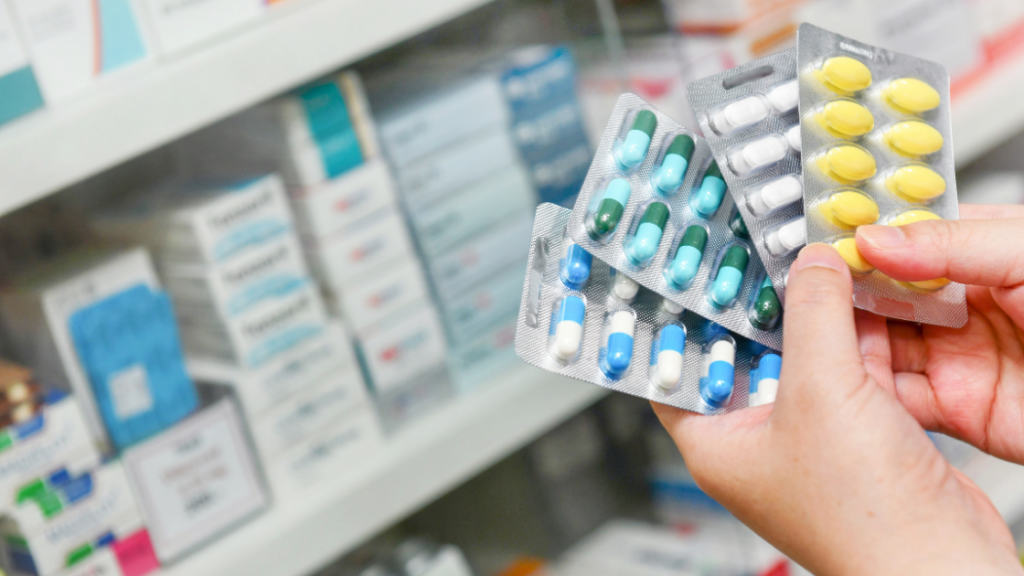Two years ago, a group of U.S. hospitals launched Civica Rx, a nonprofit generic drug company that I have the honor to lead. Its core mission is to deliver quality medicines at sustainable prices.
[Martin Vantrieste | October 5, 2020 | STAT]
From the very start, part of Civica’s approach has included an emphasis whenever possible on American-made medicines and the active ingredients from which they are made. That’s because a drug’s supply chain is a key part of quality, and short supply chains are less susceptible to disruption.
In a recent op-ed, FDA Commissioner Stephen Hahn and Deputy Commissioner Anand Shah wrote that the pandemic has highlighted the vulnerability of our medical supply chains like never before, and there seems to be an upsurge in bipartisan support for policies to encourage American-made medicines.
A recent White House executive order would create a list of essential drugs and use the purchasing power of the U.S. government to preferentially buy medications made in this country. The Biden campaign has outlined a similar approach.
Critics of this policy make two main arguments: (1) It will do too much. And (2) it won’t do enough.
Some say the “buy American” order will distract from efforts to develop new medicines to combat the novel coronavirus, yet the executive order has no effect on any drug that is still under patent and thus faces no competition. What’s more, companies are certainly capable of pursuing scientific R&D while simultaneously making strategic decisions about manufacturing.
Others argue that the order won’t be enough to bring manufacturing back to the U.S. overnight. While it is true that additional measures will be needed, this policy or similar ones will help support U.S.-based manufacturers.
Both sides agree that globalization and the outsourcing of drug manufacturing benefits consumers by reducing the cost of drugs. They make the case that even though global supply chains are long and complex, they are effective at delivering medications to patients.
That’s true, except when things go wrong.
The existing U.S. drug supply chain has some well-documented weaknesses:
- For more than a decade, we’ve experienced chronic shortages of hundreds of essential medicines.
- Quality problems with drugs manufactured overseas, particularly in China and India, have frequently been identified, yet the U.S. Food and Drug Administration has had limited ability to carry out foreign inspections.
- As we have seen during the coronavirus pandemic, countries may curtail exports for a variety of reasons. In March, India restricted the export of 26 drugs to prevent domestic shortages. A senior Chinese official has even hinted at export limits on antibiotics as a tool in ongoing trade disputes.
For these reasons — quality, reliability of supply, and national security — it makes sense to ensure that the U.S. has the ability to make the active ingredients for essential drugs as well as the finished products, and also has the ability to ramp up production in a crisis.
An emphasis on U.S. sourcing is just one aspect of the Civica model. It also relies on long-term purchase agreements with its hospital members to create a predictable and stable demand. Civica works with hospitals to prioritize essential medications and plan for supply interruptions through agreements with multiple suppliers and by holding a physical stockpile of medicines. These are all strategies that policymakers should pursue to ensure the U.S. is ready for the next pandemic.
This spring, Civica entered a partnership with Phlow Corporation of Virginia, with significant funding from the federal government, to create an end-to-end U.S. manufacturing system for finished drugs, active pharmaceutical ingredients, and key chemical precursors. To make it economical for other companies to make long-term investments in U.S. drug manufacturing and the jobs that would come with them, policymakers should consider additional measures, all of which have attracted bipartisan support. These include using the government’s purchasing power, including through long-term contracts, to create a stable demand for American-made medicines, their active ingredients, and some of the key chemicals used in their manufacture. Tax incentives and other measures can also reduce the cost of building new U.S. manufacturing facilities.
The goal of such policies is not to disentangle the United States from the global marketplace. A diverse drug supply chain is a good insurance policy. But for essential drugs, in peacetime or pandemic, the U.S. should ensure that it can provide the medicines Americans need when we need them.
Martin VanTrieste is the president and CEO of Civica Rx and a member of Phlow’s board of directors, for which he is not compensated.
Read the original article here.












